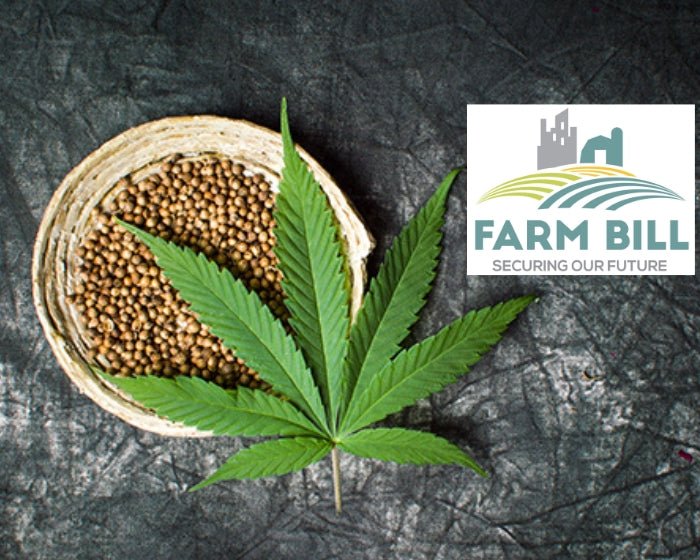Following a week of meetings to resolve differences between companion measures passed in the House and Senate, state legislators have agreed on a revised bill.

It has been a long and tenuous road for lawmakers seeking to pass legislation making Minnesota the 23rd state to legalize adult-use cannabis. At the beginning of 2023, a dedicated core of representatives and senators from the State House introduced separate yet similar measures to establish a legal and regulated recreational marijuana market for Minnesotans 21 and older. Last month both pieces of legislation passed in the House and Senate, respectively.
According to numerous media outlets covering the proceedings, this week, after three meetings of a special bicameral committee appointed to reconcile key differences between the two bills, lawmakers have agreed upon a final version of the measure that will now go back to the separate chambers for a potentially historic vote. If the House and Senate approve it, the bill will head to the desk of Gov. Tim Walz (DFL), who has promised to sign it into law.
In the first two meetings, bipartisan and bicameral negotiators worked on sections of the legislation dealing with possession limits, licensing, expungements and criminal penalties. As a result, here are some of the more noteworthy adjustments made to the final bill during those first two sessions:
- There will be an at-home possession limit of two pounds of cannabis.
- Localities will be allowed to limit the number of cannabis business licenses based on population size.
- Regulators will be given the authority to decide on health and safety warnings and potency limits.
- Regulators will be allowed to create a new medical cannabis combination license for businesses to provide both medicinal and adult-use marijuana products.
- Criminal background checks will expand to include every coop member, director, manager and general partner of a cannabis business.
- Individuals convicted of marijuana possession or sales offenses will be allowed to qualify as social equity applicants under the program.
The final meeting between lawmakers on Tuesday centered on reaching an agreement concerning tax and appropriations provisions in the final bill. Bicameral negotiators agreed on a 10% tax on cannabis sales, which aligned more with the Senate version. In addition, committee members approved a compromise allowing 80% of tax revenue to go to the state treasury. The remaining 20% will be allocated to local governments, helping them cover expenses for implementing the legalization effort.
Other amendments approved during the final session included:
- Cannabis taxation agreements between the state and Native American tribes
- Appropriations to a variety of state agencies to help fund their roles in the implementation process
- Allowing low-potency hemp products to be displayed in locked cases in stores as opposed to being located behind the counter
Now that the committee has agreed upon the bill's final version, the next step will be for non-partisan legislative staff members to process the revised measure before it goes back to the House and Senate for a final vote. Furthermore, if approved, it would go to the governor for his final signature.
Following Tuesday's meeting, Sen. Lindsay Port (DFL), sponsor of the Senate version of the bill, said, "This has been a huge team effort through the legislature and through the state of Minnesota. Hopefully, we will have a final conference committee report for you within the next day or two, and then Representative Stephenson and I remain absolutely committed to getting this bill passed this year."
"This has been a huge team effort through the legislature and through the state of Minnesota. Hopefully, we will have a final conference committee report for you within the next day or two, and then Representative Stephenson and I remain absolutely committed to getting this bill passed this year."
- MN State Senator Lindsay Port (DFL)
Sen. Port and her House counterpart, Rep. Zack Stephenson (DFL), have worked together tirelessly on the reform initiative for almost six months. However, with each lawmaker guiding their respective bills through over a dozen difficult committee hearings, the joint effort is nearing a momentous end for the dedicated duo.
Echoing Port's sentiments, Rep. Stephenson said, "We're over 30 committee hearings between the two of us, and that's not including the three conference committee meetings that we've had. The work that has been done by you (Sen. Port), by the Senate conferees, by the House conferees, by many members who are not in this room, by many members who have retired from the legislature, by people who never served in the legislature, (and) by people who have never been to the Capitol, to get this bill to this place."
"We're over 30 committee hearings between the two of us, and that's not including the three conference committee meetings that we've had. The work that has been done by you (Sen. Port), by the Senate conferees, by the House conferees, by many members who are not in this room, by many members who have retired from the legislature, by people who never served in the legislature, (and) by people who have never been to the Capitol, to get this bill to this place."
- MN State Representative Zack Stephenson (DFL)
Despite the smiles seemingly shared by all following the bicameral committee meetings, there is still a lot of uncertainty and uneasy feelings for many small hemp business owners observing the process. While the committee did address and reconcile the main misalignments between the two versions of the legislation, it still did not tackle the most glaring issue plaguing the legalization initiative.
For months, hemp advocates and stakeholders have been lobbying and downright pleading with lawmakers to remove hemp's highly unusual and unprecedented inclusion from the marijuana reform legislation. The unnecessary and harsh economic and regulatory rules it would impose on the Minnesota hemp industry could ultimately destroy many small businesses in the still young and developing sector.
Of the more than 20 states that have passed marijuana legalization measures, Minnesota is the only state to enmesh hemp with cannabis in its legislative effort. Unfortunately, in their zeal to pass the law, leaders at the State House may end up destroying one of its most dedicated and passionate allies in the overall legalization effort.
Hemp and cannabis have successfully coexisted for millennia. They are literally two parts of the same physical plant. If they can mutually flourish in nature, then surely the legislative leaders of Minnesota can figure out a way for them to do the same in two separate legal and regulated markets.







































